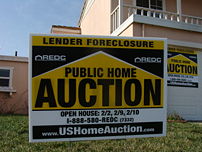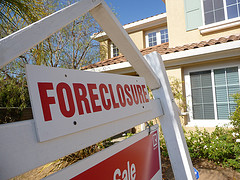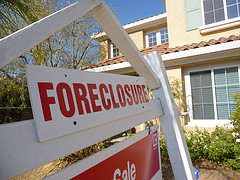Description: This article describes the pros and cons of short sales and loan modifications. It offers some useful tips for deciding which would be the best option for you.
When you agree to enter into a mortgage on a home, you are agreeing to abide by specific terms set out in a loan agreement. You agree to a payment schedule and a payment amount, based on the amount of the mortgage loan and the interest rate offered by the mortgage company. But what are your options when you find that you can no longer abide by the terms of the agreement? For whatever reason, if you find yourself unable to meet your mortgage payments, there are several options available.
Loan Modification
The first thing you should look into would be a loan modification. A loan modification is simply the process by which the terms of the original mortgage agreement are changed. In a mortgage agreement, the mortgage lender holds a lien on the property until the mortgage is paid off. Loan modifications that benefit the borrower are typically changes in the interest rate, or to change from a variable to a fixed interest rate. Changes could be made in the accrual of late fees and penalties or could even be in the length of the loan. A fifteen-year mortgage could be lengthened to a thirty-year mortgage. The borrower can be in default, in bankruptcy or in foreclosure when these loan modifications take place. The modifications take place at the discretion of the mortgage lender. Often, it is their financial best interest to modify the terms of the loan because it would ensure that the buyer would continue to pay the mortgage, which would be more valuable to the lender than foreclosure.
Certain criteria must be met in order for a loan modification to be considered. Those criteria can change, so it’s good to check with your lender or with your attorney to find out if you qualify for a loan modification. Loan modification is a good option for people who are basically financially stable, but who need the mortgage to be restructured in order to keep current.
Short Sale
A short sale, in real estate, occurs when the property sells for less money that the borrower owes on the home. A short sale is usually done to avoid foreclosure on a property, something a mortgage lender usually wants to avoid. In a short sale, the mortgage lender agrees to discount a loan balance because of some financial hardship on the part of the borrower. Most of the time, the mortgage lender agrees to take the entire proceeds from the sale of the home as payment on the mortgage, agreeing to forgive the outstanding difference owed by the borrower. This usually occurs when the borrower cannot afford to pay the mortgage anymore and the bank does not want to foreclose.
What’s best for you?
• Saving your home and avoiding foreclosure is the primary goal in deciding what the next step is for you and your family. If you are experiencing a temporary


![Reblog this post [with Zemanta]](http://img.zemanta.com/reblog_e.png?x-id=3876453b-7262-490a-b0db-05f87adbde2a)

 If you are behind in your
If you are behind in your ![Reblog this post [with Zemanta]](http://img.zemanta.com/reblog_e.png?x-id=15d77b79-37c1-41e8-9a46-e69563c1a2f7)

 If you are having trouble keeping up with your
If you are having trouble keeping up with your ![Reblog this post [with Zemanta]](http://img.zemanta.com/reblog_e.png?x-id=d6a66d97-d653-4911-bbe0-c273ac12df1a)

 A hardship letter is a letter written to your bank or
A hardship letter is a letter written to your bank or ![Reblog this post [with Zemanta]](http://img.zemanta.com/reblog_e.png?x-id=da26d387-62eb-4ac0-ad41-f4721c6fa94a)
